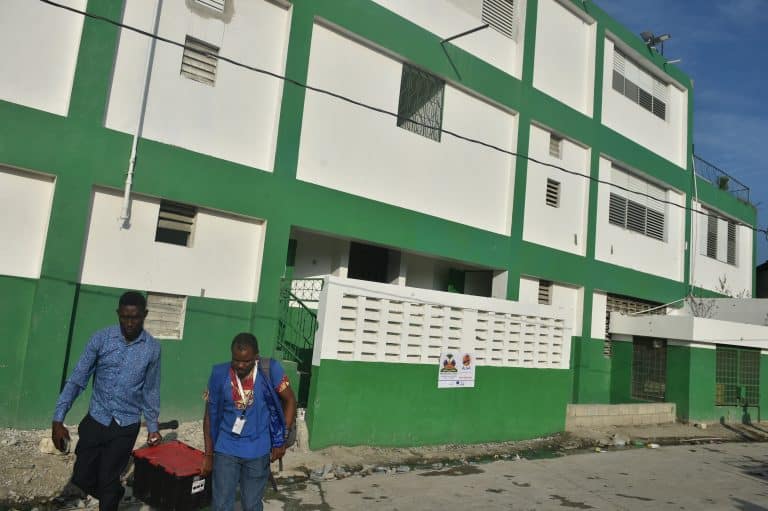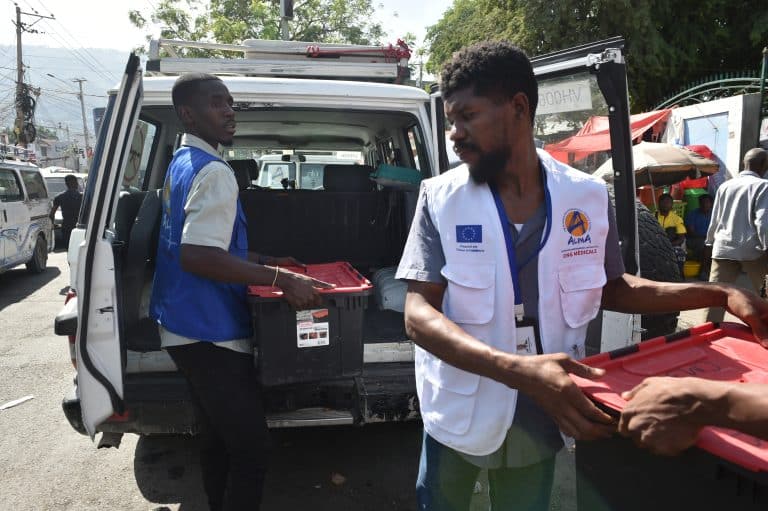Mental health
- There are fewer than two mental health professionals per 100,000 people in Africa, compared to a global average of 13 (WHO).
- Trauma from conflict, epidemics, and forced displacement exacerbates psychological suffering.
- Mental health is a crucial issue in humanitarian aid, but remains overlooked and underfunded.
ALIMA integrates psychological and psychosocial support into its medical interventions to help individuals overcome trauma and other related mental health issues to rebuild stability.
Humanitarian context and challenge
Humanitarian crises and psychological distress
Conflict, malnutrition, epidemics, and natural disasters deeply impact mental health. In ALIMA’s intervention areas, these crises result in:
Violence, serious trauma, other distress (attacks, rapes, kidnappings).
Forced displacement, family separations, and increased precariousness.
Marginalization and stigmatization of vulnerable populations.
💡Why does this matter?
- Extremely limited access to psychological care in humanitarian settings.
- Post-traumatic disorders, anxiety, and depression are underdiagnosed due to a lack of trained professionals.
- Early psychosocial support helps mitigate long-term suffering, prevent further unrest, and improve community resilience.
📌 In 2024, ALIMA provided mental health support to over 130,000 people, particularly in conflict zones.
➡️ To address these challenges, ALIMA implements tailored solutions to meet the psychological needs of patients and humanitarian workers.
ALIMA’s action
💡How does ALIMA support mental health?
Since 2014, ALIMA has been developing comprehensive mental health and psychosocial support in its interventions.
🔹 Community awareness and prevention
- Mental health promotion through local outreach campaigns.
- Support groups and psychoeducation sessions to help victims better understand and manage their distress.
- Mobilization of community networks to encourage collective empowerment.
🔹Mental health consultations
- Individual and group sessions to diagnose and treat psychological disorders.
- Psychological first aid for victims of recent trauma.
- Management of post-traumatic stress disorders (PTSD), anxiety, depression, psychosis, and sleep disorders.
🔹Support for vulnerable children
- Psycho-stimulation for malnourished children to mitigate early-life stress effects.
- Recreational activities and games to strengthen cognitive and emotional development.
- Support for parents (especially mothers) to promote interaction and secure attachment.
🔹Well-being of humanitarian workers
- Post-intervention briefings to prevent stress and burnout.
- Specialized management of mission-related trauma.
- Ongoing psychological support for field and headquarters staff.
🔹Training and capacity building
- The fundamentals of mental health in humanitarian emergencies.
- Psychological first aid for health professionals and volunteers.
- Integration of psychological care into general medical practice.
📌 ALIMA operates in over 10 countries to alleviate psychological distress and help communities build resilience.
Frequently Asked Questions (FAQs)
- Post-traumatic stress disorder (PTSD), anxiety, and depression.
- Sleep disorders, suicidal thoughts, nightmares, eating disorders.
- Isolation, panic attacks, chronic despair, alcohol and drug abuse.
ALIMA provides individual and group consultations, support groups, and specialized care for children and caregivers.
Lack of trained professionals and underfunding of mental health programs limit access to psychological care, despite its critical importance.
On the ground
Related news

Port-au-Prince: In Cité Soleil, the CHAPI Hospital Comes Back to Life After Years of Neglect
In Cité Soleil, one of Haiti’s most vulnerable urban contexts, the CHAPI Hospital, located in the Boston area, is coming back to life after being

In Port-au-Prince Camps, Access to Healthcare Remains a Major Challenge for Displaced Populations
In Port-au-Prince, thanks to its mobile clinics and a strong network of community health workers, ALIMA is restoring regular access to healthcare for displaced populations,

”I Feel Stronger”: The Journey of a Displaced Mother
Internally displaced after losing her husband and son, Zenabo is trying to rebuild her life in Bouro, in northern Burkina Faso. Thanks to the psychological


